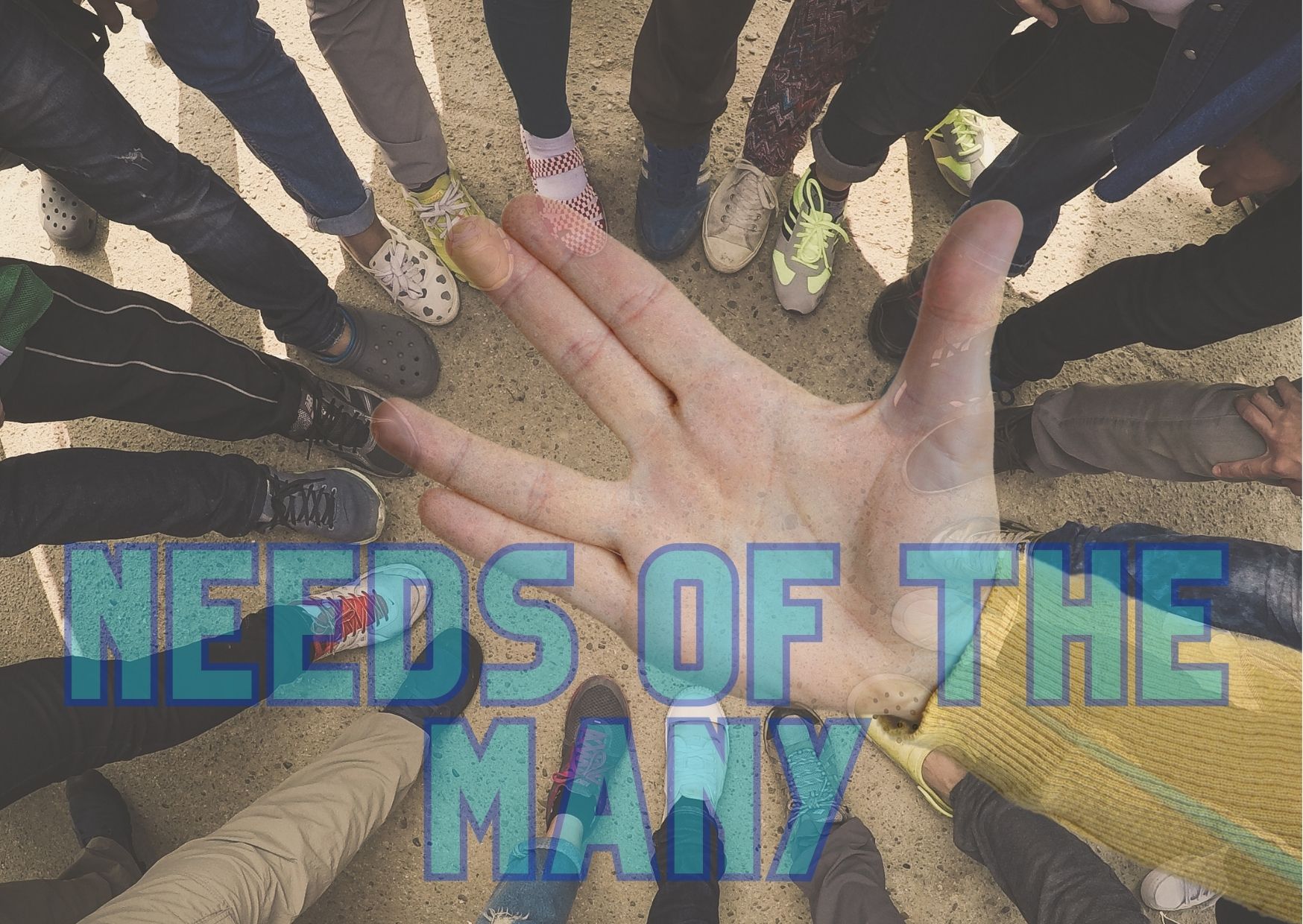
Sharper

Many people will ask a child what they want to be when they grow up, a doctor, firefighter, musician, artist, or engineer, and parents wish them some earthly success (i.e., fulfillment) for their child. Other parents want their children to grow up to be kind and compassionate, to be “good” people to themselves and those around them. But for me, my biggest desire is that my kids grow up to love God with their entire being. Because I know that if my children grow up to
“… seek first His kingdom and His righteousness, and all these things will be given to you as well.” (Matthew 6:33).
Part of them pursuing this end is for me to pass on a vibrant and lived-out faith. I do not want my kids to see me as a hypocrite, preaching one thing on Sunday mornings and living oppositely Monday through Saturday. This is precisely what Deuteronomy 6:4-9 points out.
Deuteronomy 6:4-9 – “Hear, Israel! The LORD is our God, the LORD is one! 5 “And you shall love the LORD your God with all your heart and with all your soul and with all your strength. 6 “These words, which I am commanding you today, shall be on your heart. 7 “And you shall repeat them diligently to your sons and speak of them when you sit in your house, when you walk on the road, when you lie down, and when you get up. 8 “You shall also tie them as a sign to your hand, and they shall be as frontlets on your forehead. 9 “You shall also write them on the doorposts of your house and on your gates.”
There is a word used in this passage that is a Hebrew idiom or phrase that carries a more significant meaning than we might immediately grasp. This phrase translates as “you shall repeat them diligently,” but you could also render it as “repeat them again and again,” the gist is that it is a repetitive process. Yet the word coveys a more intensive meaning.
“For the word of God is alive and powerful. It is sharper than the sharpest two-edged sword, cutting between soul and spirit, between joint and marrow. It exposes our innermost thoughts and desires.” (Hebrews 4:12).
God’s word has the unique ability to touch the deepest part of our existence.
There is still a more profound meaning; part of the word שָׁנַן shânan means to whet or sharpen- as in the process of using a whetstone to sharpen a knife blade. To hone a knife means to remove the imperfections of your edge and make it straighter and sharper; you are molding your knife to be its best version of itself (metaphorically speaking). We all know that a dull knife is dangerous, and if we want to bless the world, we need our children to be sharp and true, minimizing the damage done by a harsh and cruel world.
Because as the pressures of the world so easily wear us down, there is only one thing that will make them effective and resilient- that is by seeking God through His Word and Spirit. Therefore, through the repetitive and intentional use of God’s word in my life and home, I am shaping and sharpening my children for when they might need to draw deeply from the spring of Life. For those without children or past that point in life, how are you being molded or sharpened? How are you allowing God to hone you to where He wants you to be? Are you dulling, or are you becoming sharper? But I will do everything in my power to make those who come alongside me sharper.
Promised Land

One of the ships, the Star of India, the oldest surviving sailing ship, has a story as impressive as its weathered timbers. It embarked from the Isle of Man in the British Isles in 1867, and its purpose was to haul cargo from England to India and back. However, the most astonishing part is that after its life as a cargo ship, it became commissioned as a transport vessel for people. The ship’s new route was from England to New Zealand via the Suez Canal in Egypt, each trip taking 100 days or more to complete. Entire families would load up and travel to New Zealand; they would sell all their belongings, buy enough supplies to last the trips, and outfit their tiny cabins within the cargo hold in hopes of making it to a new land rife with opportunities—an incredibly tough journey made by resilient and robust people.
Journeys like this take a certain level of determination, endurance, and strong dispositions to complete it. These aren’t the voyages of fanciful dreamers, happy-go-lucky day-trippers, and laissez-faire tourists. They only partly knew what they were getting into, and they met that challenge with resolve and persistence. These voyages remind me of another traveler who started migrating toward an unknown location because he was told of a future promise.
Hebrews 11:8-10, 14-16 NASB20 – “By faith Abraham, when he was called, obeyed by going out to a place which he was to receive for an inheritance; and he left, not knowing where he was going. 9 By faith he lived as a stranger in the land of promise, as in a foreign land, living in tents with Isaac and Jacob, fellow heirs of the same promise; 10 for he was looking for the city which has foundations, whose architect and builder is God. … 14 For those who say such things make it clear that they are seeking a country of their own. 15 And indeed if they had been thinking of that country which they left, they would have had opportunity to return. 16 But as it is, they desire a better country, that is, a heavenly one. Therefore God is not ashamed to be called their God; for He has prepared a city for them.”
I reflect on this passage often. Abraham is our spiritual archetype; God promises him a glorious place he has never been to; this thought alone is an exercise in faith and belief. Yet because he trusts in God, he is willing to leave all that he has known and travel there. Abraham’s legacy is that he will gain an inheritance that God provides. Abraham intentionally left his earthly family, giving up whatever land or birthright he would have had to receive an inheritance from God.
The author of Hebrews leaves his readers and us with the rhetorical question, “Would you live like a stranger now so that you can enjoy God’s inheritance later?” or “Are you willing to risk everything you have now for the promise of God?” These questions link with our desire to pursue God. In our lives, we want to have it all; we want to have our cake and eat it too. The lesson from Abraham is that you must be willing to leave what you know for what God will give you. And when you live like this, God is proud to be called your God because He knows your heart is truly His.
We should be inspired as we consider individuals willing to brave the unknown: Marco Polo, Lewis and Clark, homesteaders on the Oregon Trail, and the passengers on the Star of India. To leave everything, traveling with nothing but the hope of a future, is moving and motivating. Let’s be like those intrepid travelers, willing to leave it all behind for a Promised Land.
A Second Life

I remember how nervous I felt as the plane landed at the San Antonio airport, collecting my carry-on bag and following the signs to the receiving area. Young adults were racing through the airport, excited to start their new life, whooping and hollering as they went. I remember practically running corridors trying to keep up with the rest of the recruits. As I rounded the corner, there, tucked into a corner of the airport, was the designated collection point.
As we approached, the instructors had a place to sign in; peering at the paper, you located your name and signed in, letting them know you were there. And they asked you to take your seat… that is when everything changed. Your signature magically transformed each person into a trainee, stripping you of any level of anonymity or individuality- you belonged to Uncle Sam. The military personnel used their displays of intimidation, applying social pressures and barking orders, and you knew your enlistment became real.
August 1, 2013, is a far different memory in my mind; almost 11 years after my enlistment, I made another transition. I stepped away from military/government life to serve a different population. Through the promptings of many people in my life and God’s hand in my life, I transitioned to ministry. My first taste of ministry was loading up 20 teenagers and heading to Ute Lake, near Logan, NM. That weekend changed my life more than the military had previously done. To sit and play with these kids while we enjoyed the community of Christ was unparalleled compared to anything I had done before.
I share these two stories because they both affected me. One experience changed me through shouting and breaking me down mentally. The other built me up to show me my true potential. This is the difference between what the world offers and what life in the spirit is like. I am reminded of this passage from Paul’s letter to the church in Corinth.
So many people are stuck, living only in the nature of the first Adam. They are only sympathetic to the physical side of life. And they wonder why this is a life that conforms to only one end. You may pursue the highest and noblest causes but there is no benefit to that pursuit. There is only one end to this physical life… DEATH. God, through Paul, is informing us of something that is beyond this life of death, there is an avenue of life, and that is found only in Jesus. And when you have that life, you have an abundant life, more than you can imagine. It fills you up and sustains you. It is a well that never runs dry. We have all lived and experienced the earthy-fleshy side of existence- I urge you to strive for the life change of a Second Life.
P.S. I loved my service in the military, but it pales in comparison to a life devoted to Christ. I know not everyone is blessed enough to enjoy vocational ministry. But if you aren’t serving the Kingdom of God in some way, you are missing out, on something that is beyond your wildest imagination. Pursue that which is greater, and higher, a nobler…but one that leads to life everlasting.
Missing Out

Everyone is different, especially when it comes to vacations. Some like to rest and relax. For them, a vacation is there to afford you copious amounts of downtime. Others are “travelers” because they want to experience a different atmosphere and region of the world, taking in the sights and sounds of somewhere they only visit. I feel as though I land in both camps, I like to relax, but I also want to experience new things while I am out and about.
While in southern California, we were also vacationing with our longtime friends, the Darnells, Matt, Beth, and their three children. One of the neat experiences we were able to be a part of was going to SeaWorld. Before going, I had conjured up some visions of a large aquarium with the possibility of an interactive show. I was unsure what to expect, but I know my kids love animals, and this would be a neat way to see animals that are often out of our view.
As we approached the park, the boys immediately noticed some rollercoasters. Theo absolutely loves a good rollercoaster unless it makes him sit alone; he likes the comfort of his mom or dad next to him. Well, this changes our approach. Now we will see sea animals and go on a few rides. As we walked in the front gate, we started noticing signs attached to the lines for the rides that said $6 unless you have a special annual park pass. This observation was devastating because although I am not cheap, I can’t imagine paying $6 per person per ride; for my family of 5, that’s $30 every time we get on a ride! Amanda and I decided to sponsor one ride per child, but they must really want to go on that ride.
Many Christians assume they know what is included in the life of following Christ. They think they know what a life devoted to Jesus is all about, but they often miss out on some significant benefits. I can’t tell you how many Christians feel when they assume all responsibility for their salvation. Even though they know that Jesus is their Savior, they think they are responsible for their entrance into Heaven.
It is like going to a theme park and not fully realizing the joy and the freedom of a rollercoaster. The wind in your hair, the exhilaration of zero gravity. God has made some astounding promises in scripture, and we should realize the full benefits without ignoring what He has done for us. Reflect on these verses and ask yourself if you rest in these promises or feel you are still responsible for your salvation. As the old song says, Jesus paid it all, and the entrance fee is there. Do you realize that, or do you feel like you should pay $6 to enjoy the ride? My prayer is that you don’t feel like you are Missing Out.
1 Peter 1:18-19 – “For you know that God paid a ransom to save you from the empty life you inherited from your ancestors. And the ransom he paid was not mere gold or silver. 19 It was the precious blood of Christ, the sinless, spotless Lamb of God.”
Celebrated!

You can think of this from human relations and our relationship with Christ as His Bride. For this reason, it is one area in our lives that Satan desires to destroy and dismantle. So for those of you committed to another soul in holy matrimony, here are some things I have learned during my seasons of marital bliss.
Marriage is like an ocean; each relationship has an ebb and flow. All days are not the same. Some days, you will have more to give, and others, you will need an extra dose of grace. Some days I am extremely needy; others, I am positively selfless. We all have these tidal motions, and there needs to be ebb and flow. If you feel as though you are either giving or taking constantly without reprieve in your relationships, then you need to have a conversation with your loved one. There should be reciprocity within the union. Because in a relationship, if there is no give and take, back and forth, then that isn’t a marriage that is a dictatorship.
“And I have been a constant example of how you can help those in need by working hard. You should remember the words of the Lord Jesus: ‘It is more blessed to give than to receive.” (Acts 20:35).
Marriage cannot be about simply going through the motions. We all know when someone is fake or counterfeit. In any relationship, there must be active participants. One aspect that will kill any relationship is when one partner is not authentic and genuine with their spouse. As Paul writes to the church in Corinth–
“[love] rejoices with the truth” (1 Corinthians 13:6).
You cannot fake your way through marriage, it is the most intimate relationship, and your partner requires and demands authenticity and truth in every aspect. Earlier in that chapter, Paul explains that actions without love are useless as he states,
“If I speak with the tongues of mankind and of angels, but do not have love, I have become a noisy gong or a clanging cymbal. 2 If I have the gift of prophecy and know all mysteries and all knowledge, and if I have all faith so as to remove mountains, but do not have love, I am nothing. 3 And if I give away all my possessions to charity, and if I surrender my body so that I may glory, but do not have love, it does me no good.” (1 Corinthians 13:1-3).
You cannot separate actions from intentions, which is true in our relationship with Christ and each other. Too often, when I talk to struggling couples, one of the partners is “just going through the motions,” which is detrimental to everyone involved. If you are not being genuine, reignite the love you had at first. Otherwise, you are torturing the one person you promised to love unconditionally.
It would be best to remember that two strong-willed, independent people will constantly pull in different directions. They will not always be opposites, but they will be different. Even a few degrees of differentiation will produce tension. Often we are just interpreting the same problem differently. If you have ever assembled furniture with someone, you will see that there is more than one way to tackle any endeavor. What is the solution when these tensions arise? Remind yourself of why you are together in the first place.
Recall how wayward Israel was toward God, yet what causes God to remain faithful and forgiving? He remembers,
“Go and shout this message to Jerusalem. This is what the LORD says: “I remember how eager you were to please me as a young bride long ago, how you loved me and followed me even through the barren wilderness.” (Jeremiah 2:2).
For all of us in the thick of marriage, we must remember the reasons we chose each other in the first place. There was something that drew you together. Reflect and recall those things, especially in the hard times, especially when you are giving more than receiving. It is easy to forget the “why” when you are caught up in the “how” and “what.” Keep reminding yourself what brought you into this committed relationship in the first place.
“Let your wife be a fountain of blessing for you. Rejoice in the wife of your youth.” (Proverbs 5:18).
Rejoice in your spouse! Life will take everything you have, and having another person to share life makes it tolerable. If you are not celebrating your marriage, you miss out on one of life’s few comforts.
“Furthermore, if two lie down together they keep warm, but how can one be warm alone?” (Ecclesiastes 4:11).
A couple choosing to stay together is work. However, it is beneficial and advantageous if the commitment to another is practiced and honored. As described in this verse, the world is cold and dark… rejoice that someone has your back and keeps you warm. These are all things that can and should be celebrated.
Sorry

Our boys are learning this lesson right now. You can’t tackle your brother and then expect a quick “sorry” to make everything better. Your sibling wants justice, typically from mom and dad, and also that you promise not to harm them again. Perhaps you have been there, and someone else’s actions have hurt you; there is typically no quick fix. We want to see a change of heart and a change of behavior.
We have been looking at the Name of God and focusing on His character. God’s character is complex in that one aspect is that He is compassionate and merciful, but He is also just, punishing wrongdoing. Look at God’s description of Himself from Moses’ encounter with Him.
Exodus 34:6-7 – “Then the LORD passed by in front of him and proclaimed, “The LORD, the LORD God, compassionate and merciful, slow to anger, and abounding in faithfulness and truth; 7 who keeps faithfulness for thousands, who forgives wrongdoing, violation of His Law, and sin; yet He will by no means leave the guilty unpunished, inflicting the punishment of fathers on the children and on the grandchildren to the third and fourth generations.”
On one side, He is faithful to thousands; on the other, he will punish generations for the guilty. At first glance, this seems like a contradiction. We should note there remains a distinction between thousands and even punishing up to the fourth generation, which is only a fraction of that initial number. Therefore, even in God’s justice, He makes a provision for grace and mercy. He could be unilateral in that faithfulness and punishment will be equal, affecting thousands.
Although God does not stop there, what God truly wants is not a quick condemnation and eternal separation. God desires us to recognize our failings and adjust our hearts and actions.
Deuteronomy 4:29-31 – “But from there you will seek the LORD your God, and you will find Him if you search for Him with all your heart and all your soul. 30 “When you are in distress, and all these things happen to you, in the latter days, you will return to the LORD your God and listen to His voice. 31 “For the LORD your God is a compassionate God; He will not abandon you nor destroy you, nor forget the covenant with your fathers which He swore to them.”
We can appreciate this reality. God wants us to say that we are sorry and asks us to do three main actions. First, we are to seek Him with all our hearts and soul. We are to pursue Him. Our pursuit of Him cannot be a half-hearted endeavor; we reciprocate God’s continual faithfulness to us, but this can’t be a reluctant or uncommitted approach; we must be sincere. Next, we are to return; in other words, repentance, aligning our actions with God’s direction. It is changing your behavior for the betterment of everyone involved. It follows Jesus’ first message,
“From that time, Jesus began to preach and say, “Repent, for the kingdom of heaven has come near.” (Matthew 4:17).
Finally, we must continually listen to His voice; this encapsulates the other aspects and denotes a constant action. We are not saying “sorry” and moving on; we are listening to God’s instructions for our future direction. Sometimes we say “Sorry” in an attempt to bury our wrongs and avoid true change; God asks His followers to pursue, return, and listen to Him.
If you have ever needed to make amends, this is how to do it. You apologize, then you pursue that person to make it right, next change your behavior, then ask them what you can do to make it better in the future.
These are the desires of humans; these are the desires of God. We don’t want quick confessions; we want others not to violate us again; we want a change of heart and behavior. God wants us to seek, change, and listen, conforming to His ways for our good. So, as we live in relation to God, let’s stop just only saying, “Sorry.”
First Things First

|
Remember, in school, when you begin to start with more complex mathematical equations, most of us are taught the order of operations. And a simple way to remember that order is the acronym PEMDAS; each letter in PEMDAS stands for a mathematical function- Parenthesis, Exponents, Multiplication, Division, Addition, and Subtraction. When I first learned this helpful device, I was instructed that it was PEDMAS, which switches equations’ division and multiplication aspects. And depending on which function you do first will make a difference when solving for an answer. Because of the disparity, I had to determine if what I had been told my whole life was wrong. I discovered that neither is 100% correct. Instead of using an acronym, I needed to use the correct terminology, Order of Operations. That is because the order for multiplying/dividing and adding/subtracting is reversible. Within mathematics, the problem may call you to divide before multiplying or subtracting before adding. It all depends on the expressions, and those function in order from left to right. And so, in reality, the Order of Operations is four steps: · Parentheses · Exponents · Multiply/Divide · Add/Subtract
Since we read expressions from left to right, students MUST do the operation that appears first. That is enough of a math lesson for us. What are the spiritual implications? As humans trying to do the right thing, life presents some pretty complex situations. I had often wished I had an order of operations available when I tried to solve some of my tricky situations. But then I realized that Jesus did give me a solution to my problems, using the acronym SFHKAR. Now doesn’t roll off the tongue like PEMDAS, but it is far more effective. Matthew 6:31-34 – “Do not worry then, saying, ‘What are we to eat?’ or ‘What are we to drink?’ or ‘What are we to wear for clothing?’ 32 “For the Gentiles eagerly seek all these things; for your heavenly Father knows that you need all these things. 33 “But seek first His kingdom and His righteousness, and all these things will be provided to you. 34 “So do not worry about tomorrow; for tomorrow will worry about itself. Each day has enough trouble of its own.” We get bogged down with the cares and worries of the world. These needs are common to humanity; we worry about what we eat, drink, and wear. And yes, these are important, and I am not advocating ignoring what we need to survive. God knows us, and He knows that we need these things. However, this passage builds upon the understanding that in life, there is an “order of operations.” There are things we should desire to pursue over other things. When we do this, our problems will become easier to solve and allow us to see the solution more quickly; and if there is no solution, we can find rest, realizing that God’s Kingdom has prevailed. Yet, many times, when things are spiraling out of control, or we feel our problems are too complicated, we toss our order of operations out of the window. When we balance a “full plate,” pursuing God’s Kingdom and Righteousness often suffers. When we can’t imagine fitting anything else into our lives, God and His Reign are the parts that we neglect and ignore. What would happen if we sat down and analyzed everything from a Kingdom perspective while facing a complicated equation? What would change about our lives if the things we sought were not temporary but those with eternal consequences? Pursuing God’s Kingdom and righteousness means I would pray more than I fretted. It means I have a clearer perspective of the picture and the future. I know that when I remove God’s purposes from the equation, it becomes only about me and what I can do… and in my experience, that is very little. I think things would go much better if we all… Seek First His Kingdom and Righteousness and if we all put His things first. |
×
|
Names

|
My wife and I broke tradition. We didn’t mean any harm by it. I suppose we are just a little rebellious. My first name is Thomas, my dad’s first name is Thomas, my grandfather’s first name is Thomas. How cool would it have been to have the same name for four generations? But we didn’t do that. Thomas has always been a good name, I have gone by Tommy or Tom, and when I was in trouble, sometimes my mom would call me by my given name. But when we had our first son, we chose to call him something different. We didn’t even care about the meaning of the name; we just wanted something that sounded good and was a little unique… although not too unusual. In the Bible, names have special significance; they represent an identity and describe their character. Whether we realize it or not, it gives us a backstory on an individual as we read their narrative. One of the most well-known examples of this is in the life of Jacob. His life starts with a negative and almost derogatory name. Jacob means to be a “supplanter” or literally a “heel holder,” with the connotation of holding someone back. Imagine running a race, and as you are about to lose, you grab their heel to stop them from running or winning. His name embodies the narrative of Jacob; he is about to lose, and he finds a way to come out ahead. Heel grabbing is also the story of humanity; we use dirty tactics to get ahead. We lie, steal, and cheat to become successful. Later on, we read of Jacob’s name changing. In a bizarre account, we have Jacob coming face to face with a power stronger than him but one that is also willing to tussle with him. It is a unique encounter of give and take that makes us aware of how quickly it could have ended from the beginning. Genesis 32:24-30 – “Then Jacob was left alone, and a man wrestled with him until daybreak. 25 When the man saw that he had not prevailed against him, he touched the socket of Jacob’s hip; and the socket of Jacob’s hip was dislocated while he wrestled with him. 26 Then he said, “Let me go, for the dawn is breaking.” But he said, “I will not let you go unless you bless me.” 27 So he said to him, “What is your name?” And he said, “Jacob.” 28 Then he said, “Your name shall no longer be Jacob, but Israel; for you have contended with God and with men, and have prevailed.” 29 And Jacob asked him and said, “Please tell me your name.” But he said, “Why is it that you ask my name?” And he blessed him there. 30 So Jacob named the place Peniel, for he said, “I have seen God face to face, yet my life has been spared.” The situation is mysterious and intriguing; however, what we can focus on today is changing the name. Jacob is a “cheater,” which also becomes apparent in this account. He is defeated but, true to his name’s sake, will not let go of the heel. Because of his tenacity, the mysterious figure bestows on Jacob a new name that seems positive and appropriate for the people that will spring up from his name. However, it also has a negative overtone. Jacob’s new name is Israel, meaning to wrestle, contend, or struggle with or alongside God. In one sense, it is as though Jacob is victorious, but it signifies that this future population will be locked in a wrestling match with God. Isn’t this the story of humanity? We are unwilling to submit to God, so we are locked in a battle of supremacy. If we are honest with ourselves, we realize that we cannot win but that God allows us to contend with Him. God could win easily at any moment, but He knows we grow from the challenge and trials we face. The nation of Israel never learns this lesson; they continually battle God for who is in charge. Sometimes they follow Him, but most of the time, they do whatever is right in their own eyes. We are constantly wrestling with God. Yet, in his faithfulness to His people, God promises not to let their name remain a reminder of their struggle with/or against Him. Their name will change, and they will be a part of the process. Isaiah 62:1-4 – “For Zion’s sake I will not keep silent, And for Jerusalem’s sake I will not keep quiet, Until her righteousness goes forth like brightness, And her salvation like a torch that is burning. 2 The nations will see your righteousness, And all kings your glory; And you will be called by a new name Which the mouth of the LORD will designate. 3 You will also be a crown of beauty in the hand of the LORD, And a royal headband in the hand of your God. 4 It will no longer be said to you, “Forsaken,” Nor to your land will it any longer be said, “Desolate”; But you will be called, “My delight is in her,” And your land, “Married”; For the LORD delights in you, And to Him your land will be married.”
This profoundly symbolic text alludes to when God transforms His people; he will not change their names through force. He does not choose arbitrary names because it sounds good. He knows there will come a time when the people who want to follow God will choose to do so. Isaiah’s analogy is that of a married woman who decides to take her betrothed’s name, and so will those who choose to follow God. The names bestowed upon the followers of God are because they willingly choose to change their name, not out of obligation or coercion but out of loyalty and love. |
×
|
Needs of the Many

As engrained as this is in our way of life, let me remind you that our beliefs are rooted in a near-eastern collectivist culture. It is a culture where ideas like hospitality and generosity are foundational paradigms everyone should pursue. Through the prophet Isaiah we are told of an individual that suffered so that many could be justified. One would sacrifice himself so that “the many” would benefit.
Isaiah 53:10-12
“But the LORD desired to crush Him, causing Him grief; If He renders Himself as a guilt offering, He will see His offspring, He will prolong His days, And the good pleasure of the LORD will prosper in His hand. 11 As a result of the anguish of His soul, He will see it and be satisfied; By His knowledge the Righteous One, My Servant, will justify the many, For He will bear their wrongdoings. 12 Therefore, I will allot Him a portion with the great, And He will divide the plunder with the strong, Because He poured out His life unto death, and was counted with wrongdoers; Yet He Himself bore the sin of many, and interceded for the wrongdoers.”
In any context, the Suffering Servant is an example of selflessness and sacrifice. It is an ideal to rally around and pursue. Whether you are in a culture that prizes the group or the individual, the notion that someone would endure pain and grief for others is nothing short of extraordinary. The human condition is to survive, and to choose the opposite willingly is exceptional.
Sadly, we have become numb to this type of language. We are so accustomed to the sacrifice of Christ that we interpret him as the exception and not the rule. We often analyze this concept as this was Jesus’ purpose; he died for me. Once again, this emphasizes “me” over “we” and frames our bias as one of an individualized culture. Because of this bias, our churches and fellowship have suffered. We perceive our gatherings as, “What will I gain from this experience?” “How will this church service build me up?” However, this is not the culture of God’s people. The culture that the Bible promotes is that because Jesus willingly went to the cross, so should we. Look at this passage from Paul as he writes to the church in Rome, epitomizing the look and pursuit of the body of Christ.
Romans 12:4-18
“For just as we have many parts in one body and all the body’s parts do not have the same function, 5 so we, who are many, are one body in Christ, and individually parts of one another. 6 However, since we have gifts that differ according to the grace given to us, each of us is to use them properly: if prophecy, in proportion to one’s faith; 7 if service, in the act of serving; or the one who teaches, in the act of teaching; 8 or the one who exhorts, in the work of exhortation; the one who gives, with generosity; the one who is in leadership, with diligence; the one who shows mercy, with cheerfulness. 9 Love must be free of hypocrisy. Detest what is evil; cling to what is good. 10 Be devoted to one another in brotherly love; give preference to one another in honor, 11 not lagging behind in diligence, fervent in spirit, serving the Lord; 12 rejoicing in hope, persevering in tribulation, devoted to prayer, 13 contributing to the needs of the saints, practicing hospitality. 14 Bless those who persecute you; bless and do not curse. 15 Rejoice with those who rejoice, and weep with those who weep. 16 Be of the same mind toward one another; do not be haughty in mind, but associate with the lowly. Do not be wise in your own estimation. 17 Never repay evil for evil to anyone. Respect what is right in the sight of all people. 18 If possible, so far as it depends on you, be at peace with all people.”
Read this passage several times and use any translation or version that suits you. Because this is what the body of Christ looks like. The depiction in Romans 12 looks like a group of people pursuing the church’s betterment. It looks like self-sacrifice. It looks like putting the needs of the “one” below the needs of “the many.”
Practically speaking, the mentality would be that as we live our lives, we continually think about who we can serve today. When we gather, our thought process should be, “Who can I encourage or edify today?” “How can I sacrifice for others this morning?” To truly become like Jesus, we must be willing to give up our own individualistic desires so that we can benefit the collective whole. A mentality of service echoes the words of Jesus,
I know it is counter-cultural to live in harmony with a group; however, that is our calling. If you are not living for others, you are living for yourself, and you are concerned only for the needs of the one and not the needs of the many.
Pieces

As great a picture as a puzzle is, it is not the best representation of the church. The best expression of the church is found in the words of Paul. He describes us as a body.
“For just as the body is one and has many members, and all the members of the body, though many, are one body, so it is with Christ. For in one Spirit we were all baptized into one body–Jews or Greeks, slaves or free–and all were made to drink of one Spirit. For the body does not consist of one member but of many.” (1 Corinthians 12:12-14 ESV)
The human body is a much stronger metaphor. If we are missing a piece of our body, it hurts. We feel it. It is noticeable. Our hands, fingers, and eyes do not grow back. When a part of the body is gone… a hole is present, and it is obvious. As we note further in the passage, hands, ears, and eyes are not interchangeable. They all have distinguishing roles and functions within the body. Functional uniqueness tells us something important about our lives together: you are vital and necessary. The body needs you. You are more important than you can ever imagine. Sure, the body might be able to limp along or compensate for a missing body part, but wouldn’t it be better if it didn’t have to?
A few weeks ago, we had our Song Fest. And it was wonderful. It was uplifting and a huge blessing. But a lot of body parts were missing. It was noticeable. It hurt. Some from other bodies drove 4+ hours to be a part of the gathering, and I am thankful that they did because it only encouraged us all the more.
I wish that these were isolated incidents. However, when we have functions, I can’t help but notice body parts missing. It is heartbreaking to think that someone in our congregation doesn’t see the value in being present. There is a profound beauty in being a part of something bigger than themselves. Some must believe that the body will be fine without them being there. That is not true. The body needs you. It is weaker when you aren’t here.
You might consider yourself only a small percentage of the whole. You might think, “No one notices when I am not there.” But I assure you that we all notice. Being integrated into a body strengthens you in every possible way. It is a benefit to the body and the parts, and it is a perfectly complete organism. To the church in Ephesus, Paul writes:
“Instead, speaking the truth in love, we will grow to become in every respect the mature body of him who is the head, that is, Christ. From him the whole body, joined and held together by every supporting ligament, grows and builds itself up in love, as each part does its work.” (Ephesians 4:15-16).
Each part is growing; each part is supporting other parts. We can be so much more if we are involved. We become the complete and mature body, working in unison, harmony, and tandem with each other. We need you. Each part individually is just a piece, but those pieces make up the body. We are all growing together and upward. We are all pieces.
Infinity

Some ideas are more challenging to grasp than others. We all understand that we can multiply numbers and even multiply our words to an extent. I can remind my kids that I had previously told them to clean up their rooms three times before they finally tidied up. Cooper will also multiply his words by saying something like, “You already told me 756,000 times.” We all know that this is an exaggeration, but it conveys the meaning well. The translation is I have told him more times than he cares to count.
Perhaps you remember doing the same thing when you were a kid. You would add “infinity” to the end of a phrase to show how much you agree with a statement. For example, “I love you, infinity.” Or “Infinity + 1.” We want to intensify this statement to a point where it is not calculable.
The infinite is a complex concept to grasp. There is no real beginning or end. Theo has asked me how big is “infinity.” That is a challenging question. Because infinity can be small, there is an infinite number of numbers between 1 and 2 (1.1, 1.11, 1.111); they are not whole numbers but have numerical value. Then again, infinity can be an endless amount of whole numbers more than can ever be considered. The highest value you arrive at can always be higher simply by adding 1.
Perhaps this is why when God describes large number values, He does not provide a countable number. Instead, he makes statements like “numerous as the sand on the seashore” or “stars in the sky.” They hold tremendous value but are largely impossible to figure out and calculate. We can safely assume it is too much to count or comprehend. That is why one of my favorite verses is in Psalm 103.
Psalm 103:10-12 – “He has not dealt with us according to our sins, Nor rewarded us according to our guilty deeds. 11 For as high as the heavens are above the earth, So great is His mercy toward those who fear Him. 12 As far as the east is from the west, So far has He removed our wrongdoings from us.”
It is almost impossible to consider the magnitude of God’s mercy, grace, and forgiveness. And yet this poetic verse allows me to comprehend that my sins are gone. They are so far gone that from horizon to horizon, my failings have disappeared. They have not been relegated to another place or tallied for a later time to remind me of my wrongdoings. Instead, God reassures us time and time again that He will wipe the slate clean in a way that we can understand. Quoting the prophet Jeremiah, the preacher of Hebrews states:
Through the blood of Jesus, those sins are gone. God accounted for them, and Jesus paid the sum in full. There is no outstanding balance to be reported. It may seem unfathomable, much like the concept of infinity, but it is hard to wrap our minds around. Yet, God has promised that he has removed our sins from the east to the west through the blood of the Lamb. They are gone, infinity + 1.
Power

Case in point, about a week ago, they still needed to cut their front lawn. It had become a jungle of vegetation reaching almost a foot in some areas (not that I actually measured it). They did what any new homeowner would do. They went out and bought a lawnmower. Then, they went out and bought a new electric mower. These new mowers are great, but due to the grass’s depth and the yard’s size, the mower’s new battery was drained relatively quickly. When you buy an electric mower, you typically only get one battery; these batteries cost approximately $150-250, depending on the Ah (ampere-hour or amp-hour) or how long the battery will last while operating under normal conditions. The resulting situation was a lawnmower stuck in a sea of grass while waiting for its only power source to recharge.
I don’t fault the new homeowners; that is simply a mistake that you only make a few times. We have all been there; we have overextended ourselves. We have bitten off more than we can chew. We drove too far on a half-tank of gas. We’ve all had these moments where we are stuck in the middle of a problem, having run out of power.
Romans 1:16, 20 NASB20 – “16 For I am not ashamed of the gospel, for it is the power of God for salvation to everyone who believes, to the Jew first and also to the Greek. … 20 For since the creation of the world His invisible attributes, that is, His eternal power and divine nature, have been clearly perceived, being understood by what has been made, so that they are without excuse.”
This word power is more significant than we can imagine. And yet it is something that I don’t think we take advantage of to its fullest extent. In both verses, the power is from God, and it is impossible to downplay the immense power of God. He created the heavens and the earth and spoke light into existence. The Greek word for power in these verses is δύναμις dýnamis; it is from this root that we gain our word dynamite. We have access to a power that is explosive and sustaining. The gospel and the world’s creation were affected by and through the same power. It is this same power that lives in every one of us. Paul tells us in 2 Corinthians that this power keeps us going and supports us.
2 Corinthians 4:7-12 NASB20 – “7 But we have this treasure in earthen containers, so that the extraordinary greatness of the power will be of God and not from ourselves; 8 we are afflicted in every way, but not crushed; perplexed, but not despairing; 9 persecuted, but not abandoned; struck down, but not destroyed; 10 always carrying around in the body the dying of Jesus, so that the life of Jesus may also be revealed in our body. 11 For we who live are constantly being handed over to death because of Jesus, so that the life of Jesus may also be revealed in our mortal flesh. 12 So death works in us, but life in you.”
Paul makes the case that even though we may encounter every hardship, including the expiration of our physical bodies. The element that makes all of this possible is not our ability or fortitude; it is from the same power that created the universe that raised a body from the grave that loves the unlovable. This is the power that propels us. This is the power that picks us up when our lawn mower stalls in the front yard. The question is how to keep from getting run down. We must keep plugging into the power that comes from above. We must tap into the real and lasting power that comes from above.